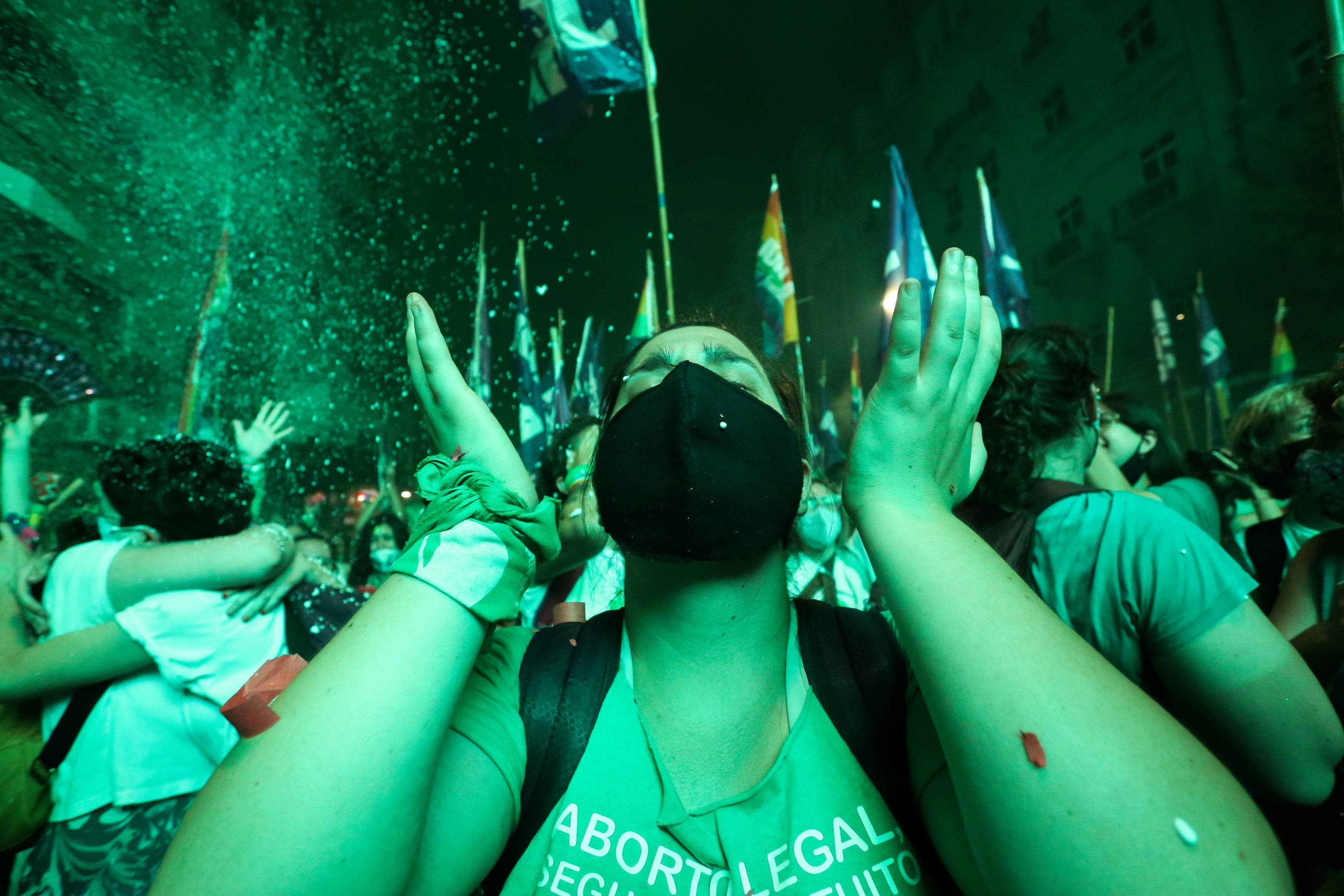Argentina legalises abortion in landmark vote
Attempts to legalise abortion had been strongly opposed by the Catholic Church in Argentina

Argentina has become the first major Latin American country to legalise abortion, after a lengthy campaign by women’s rights activists.
Abortion has previously only been allowed in Argentina if the pregnancy is due to rape or in instances when the mother’s health or life is in danger.
The Senate voted 38 in favour and 29 against, with one abstention, approving the landmark legislation after a drawn-out debate that started at 4pm on Tuesday.
Activists cheered and embraced each other outside congress in the capital, Buenos Aires, when the verdict was announced in the early hours of Wednesday morning.
The new legislation, which allows women to have an abortion up to the 14th week of pregnancy, was passed by Argentina’s lower house earlier in the month.
Attempts to legalise abortion were strongly opposed by the Catholic Church in the socially conservative nation where pregnancy terminations are a highly divisive issue.
Argentina’s president, Alberto Fernandez, who introduced the bill, said the new legislation will ultimately save lives. More than 38,000 women are forced to go to hospital each year as a result of illegal terminations going wrong, and more than 3,000 have died since 1983.
In 2018, the senate rejected an abortion legalisation bill by a close margin after it had received the approval of congress.
The latest bill is the ninth in the past 15 years to tackle the nation’s highly restrictive abortion laws, which feminist campaigners have been striving to overturn for over three decades.
Mariela Belski, executive director of Amnesty International’s Argentina branch, told The Independent that the vote has created a “safer and more equal future” for all women and girls living in the country.
She said: “Today, Argentina has extended human rights to the 22 million women and girls in our country.
“This victory is about more than legalising abortion. It’s about protecting women and girls so they can make the best decisions for themselves and their futures without risking their health and lives.”
All four senators who had previously said they were unsure of whether to vote for the abortion legislation cast a ballot in support of the bill.
Paula Avila-Guillen, executive director of the Women’s Equality Centre, said every congress member who voted in favour had “just saved the lives of countless women and girls”.
Pope Francis, who is from Argentina, posted a tweet hours before the 12-hour debate, declaring “every outcast" as a "child of God”.
“The Son of God was born an outcast, in order to tell us that every outcast is a child of God,” the pope said. “He came into the world as each child comes into the world, weak and vulnerable, so that we can learn to accept our weaknesses with tender love.”
Earlier in the month, a doctor who provides abortions in Argentina told The Independent she had witnessed women arrive at her health centre in desperate situations after having to resort to unsafe backstreet abortions.
Dr Betiana Olearo, who works in Cordoba in central Argentina, said: “I remember a woman dying in a health centre I was working in because of having a clandestine abortion. This was impactful. Not just for her family but for her community. She left behind four children. They remained alone after she died.”
Campaigners in the G20 country say women have even been routinely blocked from getting terminations in the highly limited instances when they are legally entitled to access them.
A recent report by Argentina’s Access to Safe Abortion Network found that more than 7,000 girls aged between 10 and 14 in Argentina delivered babies from 2016 to 2018, with the pregnancies often the byproduct of rape.
Mr Fernandez, who was sworn in as president last December, pledged to make abortion legal during his first annual address to congress. The president argued the current law had “condemned many women, generally of limited resources, to resort to abortive practices in absolute secrecy, putting their health and sometimes their lives at risk”.
Campaigners are hopeful that other countries in Latin America where abortion is highly restricted will follow Argentina’s lead and legalise terminations, as the nation of 45 million is highly influential in the region.
Join our commenting forum
Join thought-provoking conversations, follow other Independent readers and see their replies
Comments

Bookmark popover
Removed from bookmarks